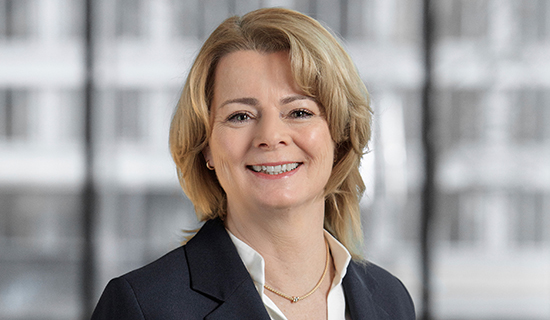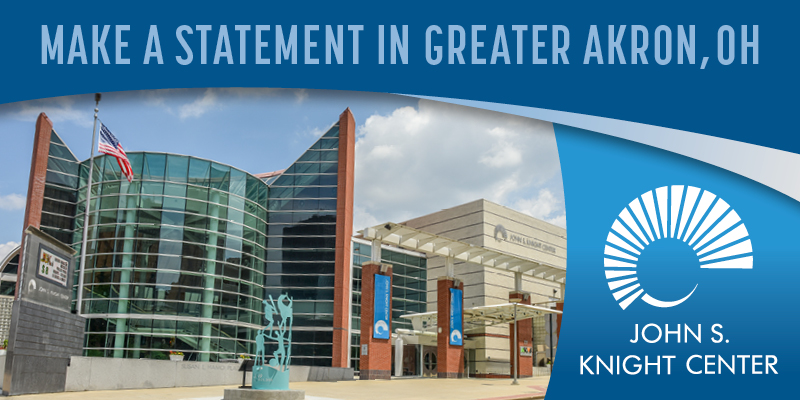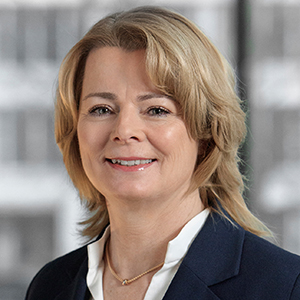Since joining LANXESS AG in 2011, Frederique van Baarle has held various leadership positions at the global specialty chemical company, a spin-off of Bayer. But perhaps none has been as exciting — for her or the company — as her new role as president and CEO of LANXESS Corp., the company’s North America-based entity.
A member of the Board of Management and Labor Director at LANXESS AG since April 2023, van Baarle relocated from the company’s headquarters in Cologne, Germany, to the headquarters of the Americas region in Pittsburgh. This momentous move marks the first time in LANXESS history that a board member has been based outside of Germany, showcasing the important role that North America plays in the company’s global growth strategy.
“My new role is a clear signal that LANXESS is very serious about having a strong footprint in North America to continue on this path of growth,” van Baarle says.
As excited as she is to lead this transition, van Baarle realizes that she can’t achieve this ambitious vision alone; her colleagues and partners around the world play a crucial part.
“Taking on my role in the Board of Management, leading a growth region for our company, especially during this critical time in the industry, and at the same time moving my family to the U.S. obviously could have been very overwhelming,” van Baarle says, “and, I admit, it was a little bit in the beginning. But the team here helped me tremendously to adjust. At the end of the day, a key to success is to surround yourself with the right people.”
Here’s how van Baarle is harnessing the strength of the LANXESS team, in Pittsburgh and beyond, to achieve the company’s aggressive goals, including its commitment to become carbon neutral by 2040.
ADVERTISEMENT:
Adjusting to America
With more than 20 years of experience in the chemical industry working for two international companies, van Baarle was already quite familiar with the cultural transitions involved in global business travel. Still, relocating her family to a new city halfway around the world came with inherent challenges.
For a native Dutch speaker from the Netherlands, who has been living in Germany for the past decade, English isn’t van Baarle’s first or even second language. Learning how to express herself fluently in a non-native tongue has been challenging, but “I’m getting better at it every week,” she says.
Beyond the language barrier, van Baarle had to adjust to different styles of communication, too. Being Dutch, “I come with some sort of directness,” she says, “which can be challenging in different environments. But with that comes clear authenticity, consistency and a little bit of charm.”
That authentic approach, she says, has helped her build trust with the LANXESS team here. In fact, to ease her transition into America, van Baarle took time to visit most of the domestic sites before moving to Pittsburgh. Getting to know the people and places behind the company’s growth was a critical step in preparing to lead the region, which accounts for about $2.4 billion of the company’s 2023 global sales of EUR 6.7 billion. As she toured each site, van Baarle saw common threads that connected the team regardless of location.
“As human beings, we have more in common than we don’t,” she says. “As different as we all are, we always find similarities because we rely on the core values and performance culture we have together.”
Core values like ownership, trust and integrity — along with guiding principles like take ownership, seek solutions and act as a team — steer the performance of LANXESS’ roughly 13,000 employees in 32 countries around the globe, including 2,200 in North America. This worldwide alignment is critical to achieving the company’s massive goals for growth and innovation, particularly in America.
“As a company, we have seen that the United States is really poised to grow its chemical and other manufacturing industries — having enough energy resources, a capable workforce of skilled labor, and also an adequate regulatory program with a keen eye on sustainability,” van Baarle says. “At LANXESS, we feel that infrastructure is key for our company’s future success, and that’s why we want to invest in this country.”
Managing change
Although all 10 of LANXESS’ global business units are represented in the Americas, van Baarle’s personal area of expertise represents some of the fastest-growing segments here. Within the LANXESS Board of Management, van Baarle is responsible for the specialty additives business, which has the largest U.S. footprint of any LANXESS division. This segment includes three units: lubricant additives, which is headquartered in the U.S. and manufactures additives for automotive, aviation and mechanical engineering applications; polymer additives, which manufactures chemicals used in everything from flame retardants to oil and paint production to water treatment solutions; and Rhein Chemie, which offers solutions for the rubber industry.
Beyond these fast-growing additives, LANXESS’ Consumer Protection segment is also very active in the Americas. This group includes high-growth lines of business such as flavors and fragrances, material protection products and liquid purification technologies.
“The business environment has changed drastically,” van Baarle says, so to keep up, “you need to be extremely active in how industries are transforming and where customers are growing. What markets are emerging or changing, and how can we tap into that? You really need a high sense of resiliency and flexibility to change.”
This commitment to flexibility must come from the top leadership down, but also be embraced at every level of the organization, van Baarle says. That requires building buy-in on the company’s goals, and keeping employees focused on the overall vision, as well as their individual responsibilities.
“You need to have a focus and communicate it to everybody. That’s absolutely key,” van Baarle says. “With everything that’s going on in our markets, it’s very easy to get distracted, and so it’s very important to have a clear plan and make sure that your employees are on board. It starts with providing clarity on what are we doing, why are we doing it, and what is our path? Make sure that all colleagues can understand their role so they can really own it.”
The more ownership that employees feel, the more empowered they are to drive performance and growth.
“Empower your employees,” van Baarle says. “It’s so important that they feel trusted to do the job and do it in a great way.”
Driving innovation
The performance culture at LANXESS drives continuous innovation, van Baarle says, because it urges everyone to seek new solutions for evolving market needs and trends. A major driver of innovation at LANXESS is sustainability, as customers and regulators push the chemical industry toward less energy-intensive solutions.
“We have already been making products more sustainable for quite some time. We want to use less energy and also make sure they’re more environmentally friendly,” van Baarle says. “We were actually one of the first global chemical companies to announce, in 2019, that we will become carbon neutral by 2040 for Scope 1 and 2 emissions, and by 2050 for Scope 3. We believe we need to set an example in the industry to show that we can make it happen.”
As part of this commitment to sustainability, LANXESS has developed a portfolio of “greener” products under the Scopeblue label. These products feature at least 50 percent sustainable (recycled, biomass-based, or renewable) raw materials, and/or a carbon footprint at least 50 percent lower than conventional products. By 2022, according to the company’s website, LANXESS was already generating 79 percent of its total sales with products that meet these sustainability requirements.
One of those products, which meets both criteria, is Lewatit® Scopeblue, an innovation from the Liquid Purification Technologies business used primarily to soften drinking water. Marketed as the “first sustainably produced ion exchange resins,” the Lewatit® products “use 90 percent renewable materials with a carbon footprint that is 70 percent less than conventional types,” van Baarle says. “That’s a fantastic development that shows our innovative capability to tap into new markets and make our environment more sustainable.”
Beyond product offerings, LANXESS continuously innovates its operations to make its production processes more energy efficient. By upgrading the thermal oxidation unit in Baytown, Texas, for example, the company reduced Scope 1 emissions at that plant by about 30 percent. This commitment to shrinking the company’s footprint is “just the right thing to do,” van Baarle says. “As a human being, you have to do something to contribute. As a company, we take responsibility for our employees, our communities and the future generation.”
Making an impact
While many sustainable innovations have been driven by customer demand, market insight, and internal research and development, van Baarle says that regulations are also pushing the chemical industry to shrink its carbon footprint. The regulatory impact on the industry has intensified recently, she says, through bans, restrictions and laws like the European Union’s REACH Regulation, which enforces the registration, evaluation, authorization and restriction of chemicals to protect human health and the environment.
“You need to be aware of the regulatory environment,” van Baarle says. “Future regulations will impact how you do business, how you produce, what materials you can source and what products you can build and sell. That definitely steers the agenda for LANXESS moving forward.”
In turn, LANXESS also wants to steer the agenda for regulating bodies by offering its chemical expertise to inform “sensible” laws and policies.
“It’s important to realize that we can have an impact and should have an impact, as LANXESS and as an industry,” van Baarle says. “We should be part of that discussion to educate local communities and government officials about why we use certain materials in the chemical industry, how they impact our everyday lives, and how we are working to reach our sustainability goals.”
She believes that LANXESS and the rest of the chemical industry can drive solutions for healthier communities and environments. After all, “our chemistries provide very important building blocks for so many products that help us live better, healthier, more sustainable lives,” she says. “It’s more important now than ever to educate the communities around us that chemistry is part of the solution moving forward.” •



